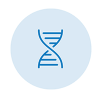Menu
Menu

Major depression is a common mood disorder characterised by persistent feelings of sadness, loss and irritability that lasts for more than two weeks. This can result in a loss of interest and withdrawal from daily activities and social interaction leading to a significant decline in quality of life. Major depression may also affect your memory and concentration.



Effective treatment may involve work in all these areas which should be seen as complementary.
Biological therapies are often required initially in order for you to benefit from psychological treatments. Biological therapies use medication or neurostimulation to normalise brain function.
Psychotherapies involve discussions with a therapist to identify negative patterns of thinking and to provide skills to assist coping with depression.
Social therapies seek to enhance social connectedness, employment and education with improved diet and exercise in a holistic approach to living and engaged an meaningful life.

Unfortunately, not every person responds to existing treatments so we are always looking for new alternatives. These research efforts are known as clinical trials.
Clinical trials allow researchers to determine whether new antidepressant therapies work, and to establish their possible risks as well as benefits. In these studies, participants often receive either the trial medication or a placebo for a period of time, during which their response to the medication is monitored regularly.
Participation in a clinical trial is free and participants can withdraw at any time.
You may be depressed if you have felt sad, low or miserable, most of the time, for more than 2 weeks or have lost interest in activities that would usually bring you pleasure.
The exact cause of depression is not fully understood.
However, a number of factors have been linked to the development of the disorder including:
You’re at higher risk of developing depression if you have low self-esteem, are self-critical, tend to worry a lot or are perfectionistic.
Continuing difficulties and struggles have been linked to depression. This may be long-term unemployment, unhealthy relationships, long-term isolation, or prolonged work stress.
Alternatively, depression could be triggered by a single event such as a childhood trauma, death of a loved one or divorce.
Certain conditions, such as insomnia, chronic pain, attention-deficit hyperactivity disorder (ADHD) and many chronic illnesses increase your risk of developing depression.
In addition, certain medication may also increase your risk.
Seek guidance from your doctor if you are concerned.
If a history of depression or another mood disorder runs in your family, then there is an increased risk of developing depression yourself.
You are at higher risk of developing depression if you have a history of alcohol or drug misuse.

Alzheimer’s disease is the most common type of dementia. The exact cause of Alzheimer’s disease is unknown.
In some regions of the brain cells die off causing these areas to shrink. First affected is usually the outer layer of the brain, which results in diminished short-term memory. Problems remembering small details such as names, dates and words is often the first sign of Alzheimer’s disease. As damage continues, deeper parts of the brain are affected. This leads to problems learning new information, using words and performing tasks.
Alzheimer’s disease usually begins with lapses in short term memory, difficulty in finding the right words, and social withdrawal. With time, these symptoms gradually become more severe. Deeper problems also emerge, such as forgetting familiar people or places, trouble using familiar objects, and trouble performing daily tasks. There may also be mood swings and personality changes.